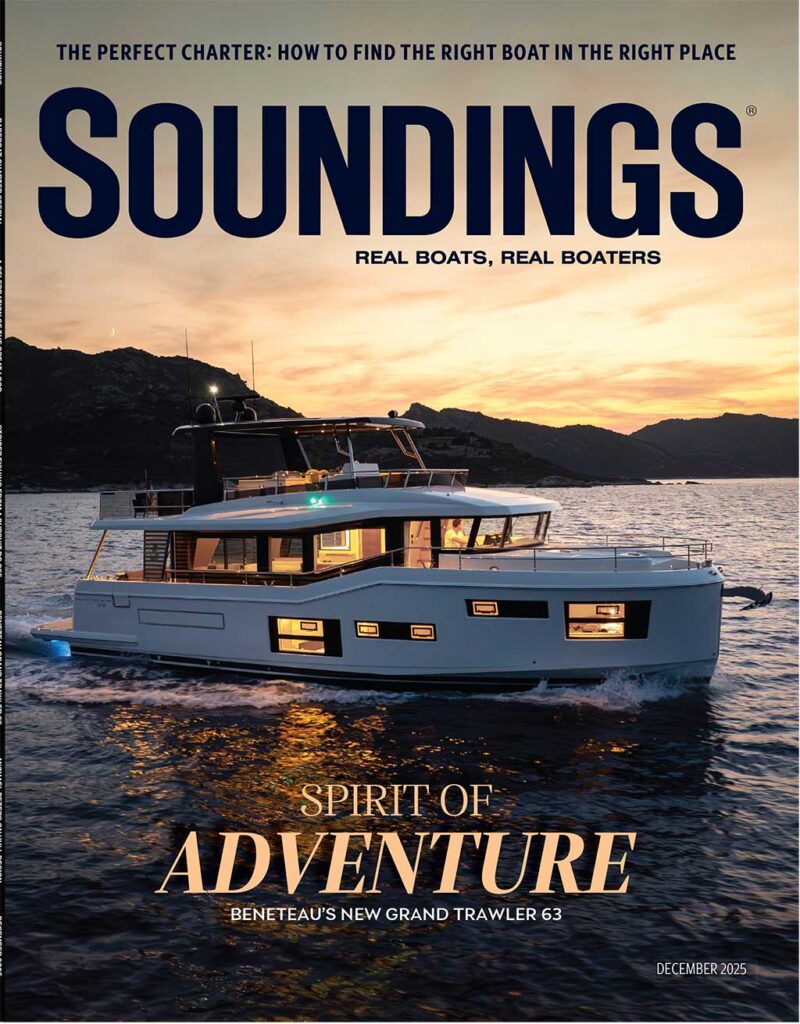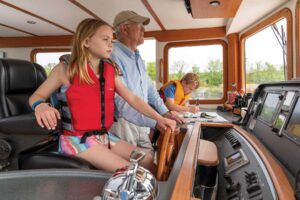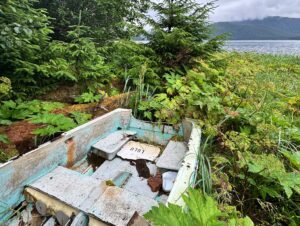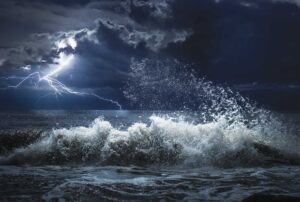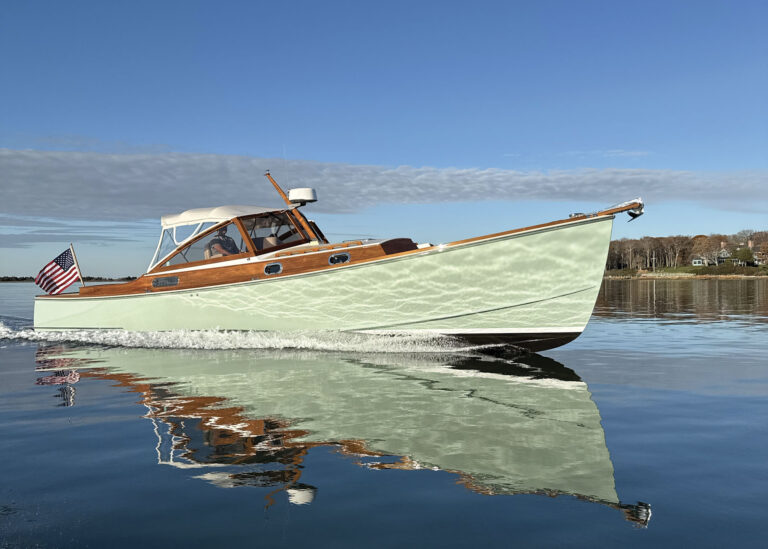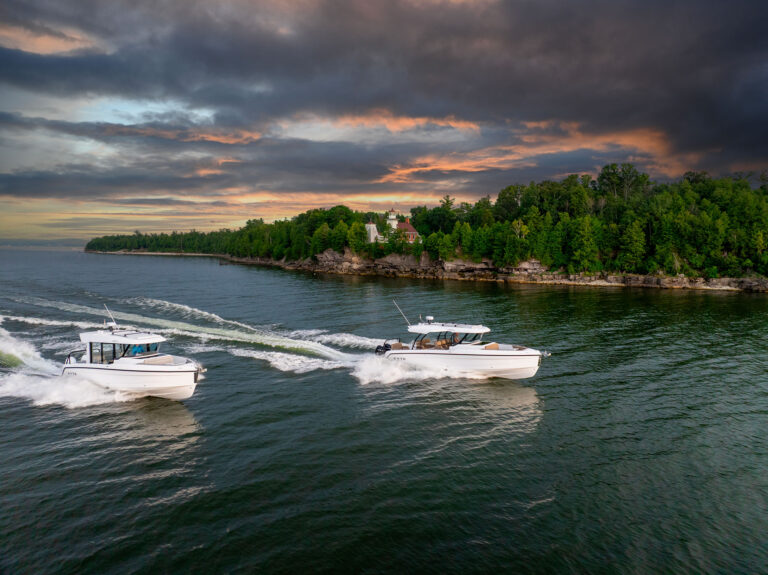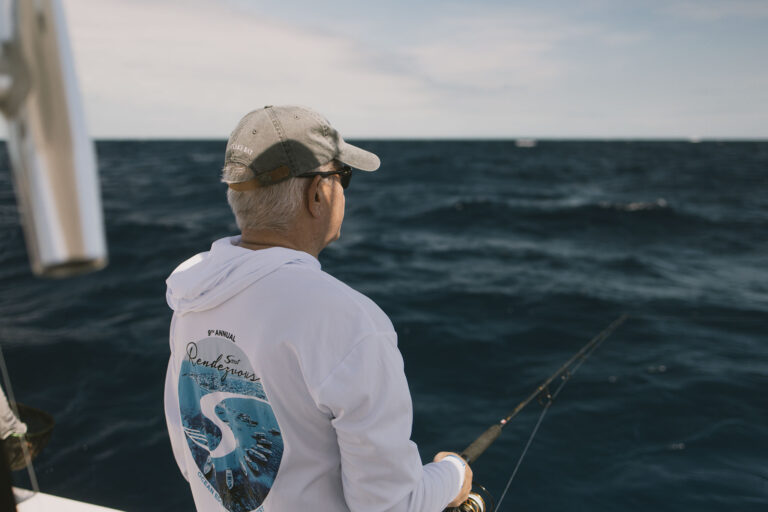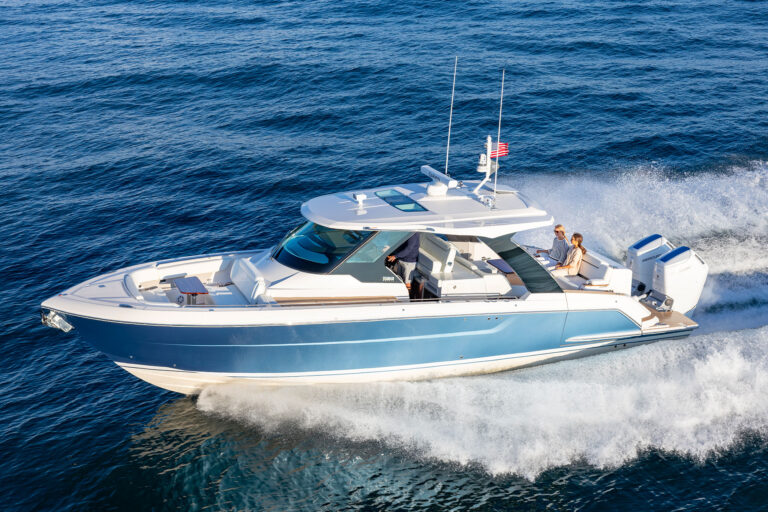Fort Lauderdale’s Jim Naugle helped turn the city into the “Yachting Capital of the World”
In his final State of the City address, Fort Lauderdale mayor Jim Naugle told commissioners that city government should remain friendly to boating because it is a big part of South Florida living — so big that it is the region’s largest economic engine, generating $13 billion a year.

A majority of Fort Lauderdale’s five-member city commission are serving for the first time in 2009 and Naugle — delivering his address March 4 at the Lauderdale Marine Center, a 50-acre boatyard and marina — gave the newcomers a heads-up about the importance of an industry that generates 130,000 jobs in South Florida.
“One of your challenges is to maintain and preserve the marine industry,” Naugle told the audience. “It really is our identity.” A Fort Lauderdale native who grew up just a block from New River, Naugle says the city grew up around the river, too.
The Tequesta Indians inhabited its banks for more than 1,000 years. Settlers moved in around the late 18th and early 19th century. The city’s development began in earnest in the 1890s when the Florida East Coast Railway came through.
Today, megayachts share the river with outboards, kayaks and cruising sailboats. The city calls itself the “Venice of America” or “Yachting Capital of the World,” citing its 50,000-plus boats — many of them foreign-flagged — and 165 miles of canals, river and Intracoastal Waterway in and around the city.
Naugle, a six-term Democratic mayor who left office March 17 because of term limits, received his first government appointment 24 years ago — to Fort Lauderdale’s Marine Advisory Board. Since then, Naugle has been a marine advocate on city boards, as a two-term commissioner and while serving as the city’s longest-sitting mayor.
Naugle is an angler. He likes to go out with his wife, Broward judge Carol-Lisa Phillips, and their daughter, Rachel, on Time Out, their “old” 1977 36-foot Hatteras sportfisherman.
Naugle advised his colleagues to support measures that would promote boating and help the marine industry post-recession, including strengthening waterfront zoning that encourages marine usage, maintaining dredging, and ensuring the Bahia Mar Yachting Center can continue to host the Fort Lauderdale International Boat Show for years to come.
Naugle sat on the podium with Bob Cox, a co-founder of the Fort Lauderdale boat show, founder of the Lauderdale Marina, and Fort Lauderdale mayor from 1986-1991. Another alumnus of the city’s Marine Advisory Board, Cox also was notable for advocating for the marina industry and was a founding member of the Marine Industries Association of South Florida.
Naugle picked up where Cox left off in shifting the city’s focus from promoting mainly tourism to also promoting boating. Delivering his address at a boatyard and marina that boasts 3,300 feet of parallel dockage, 125 floating slips, 29 megayacht docks, 19 covered work sheds, and dozens of industry tenants and outside contractors who work on boats there, Naugle said, “This facility is very important to our city. It represents how important this industry is to us.”
While acknowledging the tough times, he reminded listeners that Fort Lauderdale had been through worse. In the 1920s, eager developers dug up acres of mangrove swamp to create Fort Lauderdale’s Las Olas Isles — a complex of islands laced with manmade canals that today is a neighborhood of expensive homes and yachts. Shortly after this excavation, a flurry of devastating punches — the hurricane of 1926, a real estate bust and the Great Depression — set the city back on its heels.
“What we’re experiencing now is very minor compared to what the city went through in the ’20s,” he says.
Ever the optimist, after leaving city government Naugle plans to go back to running his real estate business, Jim Naugle & Company.
Former Democratic state Rep. Jack Seiler is the new mayor of Fort Lauderdale.
This article originally appeared in the Florida & the South Home Waters Section of the May 2009 issue.

